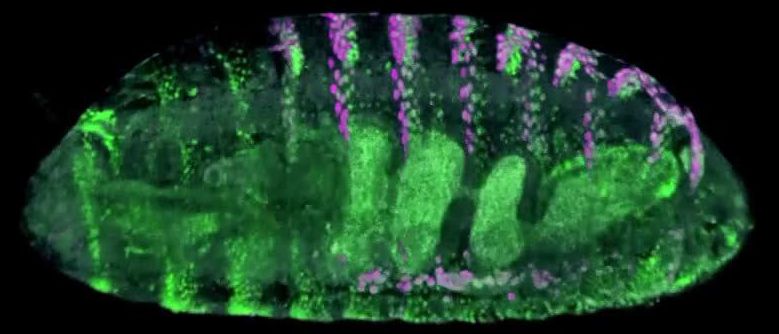Edible packaging from sea weed. 😃
The plastic-like seaweed packaging made by Notpla is biodegradable within six weeks, compared to hundreds of years for synthetic plastics.

Hydroelectric power Productions
🔔 Thanks for watching my videos, enjoy, and subscribe for more interesting daily videos!
In this video, Production here:
Turbulent Hydro
www.turbulent.be
KapaLamda
www.KCTHydropower.com
Waterotor Energy
https://waterotor.com
Landustrie
https://www.landustrie.nl/en/home.html
Dezeen

Robots for artists. 😃
What if you could instruct a swarm of robots to paint a picture? The concept may sound far-fetched, but a recent study in open-access journal Frontiers in Robotics and AI has shown that it is possible. The robots in question move about a canvas leaving color trails in their wake, and in a first for robot-created art, an artist can select areas of the canvas to be painted a certain color and the robot team will oblige in real time. The technique illustrates the potential of robotics in creating art, and could be an interesting tool for artists.
Creating art can be labor-intensive and an epic struggle. Just ask Michelangelo about the Sistine Chapel ceiling. For a world increasingly dominated by technology and automation, creating physical art has remained a largely manual pursuit, with paint brushes and chisels still in common use. There’s nothing wrong with this, but what if robotics could lend a helping hand or even expand our creative repertoire?
“The intersection between robotics and art has become an active area of study where artists and researchers combine creativity and systematic thinking to push the boundaries of different art forms,” said Dr. María Santos of the Georgia Institute of Technology. “However, the artistic possibilities of multi–robot systems are yet to be explored in depth.”

Robots are now assisting in advancing developmental biology.
The study of developmental biology is getting a robotic helping hand.
Scientists are using a custom robot to survey how mutations in regulatory regions of the genome affect animal development. These regions aren’t genes, but rather stretches of DNA called enhancers that determine how genes are turned on and off during development. The team describes the findings—and the robot itself—on October 14 in the journal Nature.
“The real star is this robot,” says David Stern, a group leader at HHMI’s Janelia Research Campus. “It was extremely creative engineering.”

Circa 2016
Scientists have developed a novel system that recovers energy normally lost in industrial processes.
Each year, energy that equates to billions of barrels of oil is wasted as heat lost from machines and industrial processes. Recovering this energy could reduce energy costs. Scientists from Australia and Malaysia have developed a novel system that is designed to maximize such recovery.
Heat can be converted to electricity by devices called thermoelectric power generators (TEGs), which are made of thermoelectric materials that generate electricity when heat passes through them. Previous studies have attempted to use TEGs to recover energy from the heat generated by, for example, car engines, woodstoves and refrigerators. However, TEGs can only convert a small amount of the heat supplied to them, and the rest is emitted as heat from their “cold” side. No previous studies have attempted to recover energy from the waste heat that has already passed through TEGs. Researchers from Malaysia’s Universiti Teknologi MARA and RMIT University in Australia set out to develop a system that can do this.



Partnership will use diagnostic imaging tools to explore health issues associated with microgravity, and apply this knowledge to patients on Earth.
The French Society of Radiology (SFR) and the country’s national centre for space exploration (CNES) have signed a partnership, details of which were streamed live at the Journées Francophones de Radiologie (JFR) congress on 4 October. The aim is to develop imaging solutions to be sent on space flights and to collaborate on image collection and optimization, teleradiology and training of astronauts.
France has the largest space program in Europe and the third oldest institutional space programme in history, along with Russia and the US. CNES, which has a long track record in space exploration, recognizes the great potential of diagnostic imaging for monitoring astronauts’ health while on missions, according to general director Lionel Suchet.
The plan is to create a “two-way street” in which radiologists and space experts will collaborate on innovative projects to make further progress, JFR delegates heard online at the plenary Antoine Béclère lecture. A SFR–CNES working group will now define the research themes and establish a schedule of tasks ahead by December.

Summary: By fusing a cytokine to a blood protein, researchers have developed a new therapy to help treat multiple sclerosis.
Source: University of Chicago
Multiple sclerosis, an autoimmune disease of the central nervous system that affects millions worldwide, can cause debilitating symptoms for those who suffer from it.
